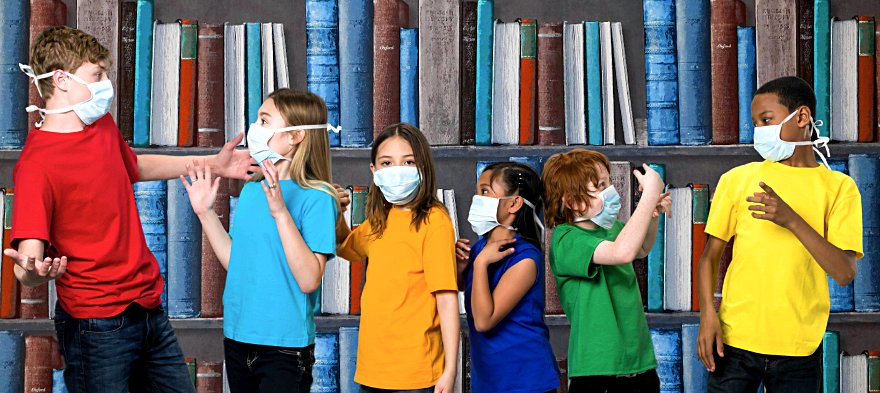
Aug 9, 2021 12:00:00 AM
As the rhetoric around coronavirus grows more partisan, it is easy to assume the worst about everything. That is just what I typically do. I haven’t come in contact with many people over the last year — for obvious reasons — so most of the information that I consume about others comes via social media or the news. I have heard all about, people arguing, fighting, and even killing people over mask mandates. So predictably, I prepared for the worst when my school told me we would be enforcing one on the kids indefinitely.
The worst did not come to pass.
We just wrapped up our first week of school. Immediately, I noticed students’ compliance with the mask rule. Students trickled into the building, in most cases, with their own masks. Students who didn’t have one actually asked for them, and the ones who did not ask didn’t object to putting them on when told. Students who weren’t wearing masks during our back-to-school night a week prior were comfortably wearing them without issue in school.
The thing that is really interesting about this situation is that I teach at a middle school. At that age, students push back about literally everything:
But [pullquote]the one complaint I haven’t heard from the hundreds of students I have already interacted with is, “Why do we have to wear masks?”[/pullquote] It seems to be understood. More than that, it seems to be internalized and even supported. I have witnessed students reminding each other to put their masks back on.
This isn’t to say we haven’t had to talk about masks at all. They are prone to wearing them under their noses. After lunch, about 10% of them break. Some students have had the same mask for so long that the strings are stretched, and it falls below their nose and mouth. “Self-mask checks” are common in my room after a period of eating or talking.
This isn’t exactly some earth-shattering discovery. It certainly isn’t the cure for COVID-19. I don’t work for “big-mask” and I’m not trying to convince you of anything. I just found it incredibly interesting that — in a world where adults struggle with wearing masks — the kids don’t seem to be bothered. And to be clear, these are the same kids that protested when I gave them cherry Jolly Ranchers instead of watermelon.
Andrew Pillow is a fifth grade social studies teacher at KIPP Indianapolis, a charter school where he has taught since 2011. He is also a former Teach Plus Policy Fellow and he has taught technology and social issues.
Few issues in education spark more tension and debate than standardized testing. Are they a tool for equity or a burden on students? A necessary check on school systems or a flawed measure of...
Charter schools are public schools with a purpose. Operating independently from traditional school districts, they're tuition-free, open to all students, and publicly funded—but with more flexibility...
Despite the benefits of a diverse teaching force, prospective teachers of color fall out of our leaky preparation pipeline at every stage: preparation, hiring, induction, and retention. Here’s what...
Ed Post is the flagship website platform of brightbeam, a 501(c3) network of education activists and influencers demanding a better education and a brighter future for every child.
© 2020-2025 brightbeam. All rights reserved.
Leave a Comment